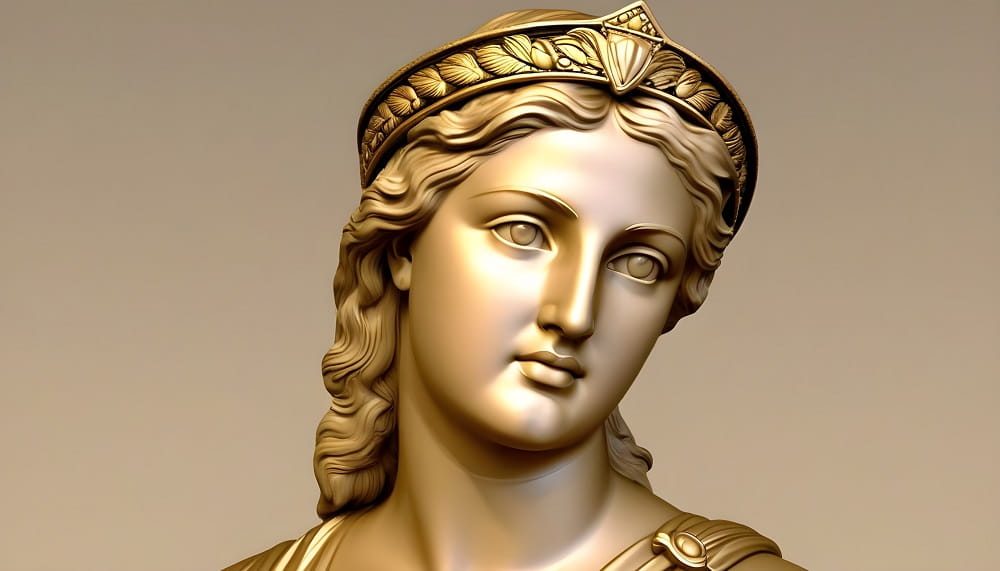Was Olympias, the mother of Alexander the Great, perhaps the most ruthless woman in history? In Alexander's formative years, she skillfully molded his beliefs, convincing him that his true father was none other than the Greek deity Zeus, foretelling his destiny as a conqueror. Olympias, dwelling with snakes in her bedroom, delved into the realms of dark magic and witchcraft, orchestrating clandestine rituals to safeguard Alexander and ensure triumph in his battles.
The historical accounts suggest her involvement in the demise of her husband, King Philip of Macedonia, driven by the fear that he might sideline Alexander, favoring his half-brother as the heir. Post Alexander's ascension to the throne, Olympias compelled the replacement wife of King Philip to witness the horrifying demise of her infant daughter. To add a sinister twist, she presented the grief-stricken woman with three macabre choices: a rope, a dagger, and poison, leaving the gruesome decision to fate. Even Alexander, no stranger to conquest and power, found himself shocked by the extent of his mother's actions, though he refrained from retribution.
In the end, Olympias met a grim fate, stoned to death by the aggrieved families of her numerous victims. The tale unfolds, weaving a tapestry of complexity and unpredictability, capturing the essence of a woman both fascinating and ruthless in equal measure.
Read:-Three Lessons Given By Alexander The Great
What Historical Accounts Actually Say?
It's important to approach historical figures with a nuanced perspective, as characterizing someone as the "most ruthless" can be subjective and may not capture the full complexity of their actions and motivations. Olympias, the mother of Alexander the Great, lived during a time of political intrigue and power struggles in ancient Macedonia.
Olympias was indeed a significant and influential figure in the life of Alexander. Her reputation for ruthlessness is often associated with her involvement in the political machinations of the time. She was known for being fiercely protective of her son's interests and ambitious for his success. Some historical accounts suggest that she played a role in the elimination of potential rivals to Alexander's throne.
One notable example is the case of Philip II, Alexander's father. After Philip married another woman, Cleopatra Eurydice, Olympias and Alexander's relationship with Philip became strained. Despite Philip's practice of polygamy, his union with Cleopatra stirred considerable turmoil within his fourth marriage to Olympias, the mother of Alexander the Great. This event cast a shadow over Alexander's inheritance, shrouding it in uncertainty and raising questions about the future.
In the complex narrative of Cleopatra Eurydice and Philip's family history, two cherished individuals entered the world—Europa, a flourishing girl, and Caranus, an adventurous boy. Tragically, following the dark shadows of Philip's assassination, both children found themselves entwined in a web of sorrow, their lives cut short by the hand of Olympias. In the aftermath, Cleopatra faced a harrowing choice, succumbing to her own demise, or becoming a victim in Olympias' sinister plot, where the line between suicide and orchestrated tragedy blurred into the realm of heart-wrenching uncertainty.
Read:-Alexander the Great's Encounter With Dragon In India
The assassination of Philip in 336 BCE, just before Alexander ascended to the throne, led to speculation about Olympias's involvement. While there is no concrete evidence linking her directly to the assassination, rumors circulated, contributing to her reputation.
Additionally, Olympias's religious beliefs, which included devotion to the cult of Dionysus, and her association with mysticism, contributed to the perception of her as a formidable and perhaps enigmatic figure.
However, it's essential to note that historical accounts from this period are often biased and influenced by the political dynamics of the time. The label of "the most ruthless woman who ever lived" may not fully capture the complexity of Olympias's character or the challenges she faced in a politically turbulent environment. Different historians may interpret her actions and motivations in various ways, and the historical record may not provide a complete and unbiased picture of her life and influence.














0 comments:
Post a Comment